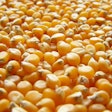Whether you are a believer or not, a growing body of opinion considers climate change is all pervading. Even the British government’s chief scientist, Sir John Beddington is urging the pig industry to adopt “climate smart” agriculture.
Investing in technology
Sir John, who chaired a UN Commission on “Sustainable Agriculture and Climate Change” is advising livestock farmers to use the latest technology to become more efficient, while reducing carbon emissions.
Admitting this would need an enormous scale of investment in research and development, he said, “We all need to cooperate and share the science and research development that is occurring globally to help us meet the international challenges.”
“We have to do it as quickly as possible. Research takes time and it takes even longer to get the results out to farmers to help them with what I like to describe as climate smart farming,” Sir John told members of the Farmers Club in London recently. He pointed out that Thailand, which suffered disastrous flooding last summer, is one of the countries already experiencing climate change.
Therefore, he will be pleased to see that the pig industry is already on the case, with industry leaders from various countries working together on a proposed “global initiative” in relation to the environment.
Pig industry initiatives
Conceived at the International Meat Secretariat’s World Pork Conference in Bonn, October 2011, this ambitious project pulls together everything that different sectors of the supply chain are doing on a country-by-country basis. A number of different countries have already agreed to share information and it is hoped to stage an official launch before the end of 2012.
“I am hoping this will produce a detailed program that the global industry can use to show the world exactly what the pig industry is already doing to protect the environment. And also help individual producers reduce their carbon footprint and become more efficient,” said Mick Sloyan, director of BPEX.
Sloyan, who has agreed to help gather all the information and put it together, explained, “There are a number of different people doing an awful lot to protect the environment in different parts of the world already. However, we are not talking about it in a unified way. The work has not been coordinated and the global impact of our actions is not recognized.
Green pig producers
“The pig industry in New Zealand, for example, is involved with small-scale anaerobic digestion plants; in Australia they are working on how to cover slurry lagoons to capture methane gases.
“Pig producers in Canada are taking action to reduce the risk of ground water pollution. In the United States, the pig industry has its carbon calculator and in the UK, we have published our own roadmap to tackle climate change challenges. In the Netherlands, they are working on building designs and air scrubbing.
“Everybody seems to be doing something to address the issues – pushing the pig industry to become more efficient and to use resources more effectively. We just need to bring it all together including the feed sector and allied industries to help reduce the pork industry’s carbon footprint and its effect on the environment on an international scale,” Sloyan said. “So far everybody agrees in principle. Now we just have to deliver!”
An organization like the International Meat Secretariat is encouraging global cooperation in other areas, such as health and nutrition and the impact of diet on meat quality. It is important, for as Sloyan pointed out, many of the people who are quick to criticize the pig industry already operate on a global basis – so it is time the pig industry followed their example.
An initiative like this will make the public more aware of pork and the efforts the industry is making to protect the environment.











